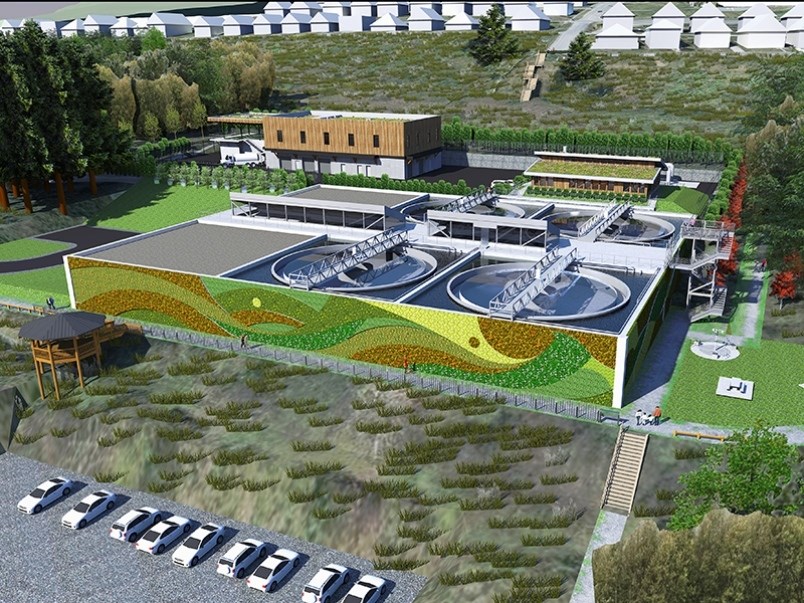City of Powell River Council has approved $10 million in long-term borrowing from the Municipal Finance Authority (MFA) of BC to construct the liquid waste treatment plant.
At the council meeting on Thursday, December 5, councillors voted unanimously to approve the borrowing, and that qathet Regional District be requested to consent to the city borrowing these funds over a 30-year term, and that the regional district include the borrowing in its security issuing bylaw. The borrowing will be part of the spring session of the MFA.
Councillor Jim Palm said he had one concern regarding the borrowing. He said an issue was brought up at committee of the whole around the timing of borrowing and he’s sure the chief financial officer (CFO) will be watching carefully and interacting with the engineering department on progress.
“I don’t want to be borrowing these funds if things may take a little longer than expected,” said Palm. “After 20 years of dealing with our liquid waste situation, you never know, it may take a little longer. We don’t want to borrow too much before we can actually start putting shovels in the ground.”
Councillor George Doubt said this is about borrowing that is going to have to happen, and managing the risk of that borrowing over the next 30 years. He said there is a risk that if the money is borrowed earlier, the interest rate may go down. There is also a risk if the city waits too long to borrow, the interest rates could increase significantly, which would increase the cost of borrowing and impact on the taxpayer.
“The entire project is going to require approximately $27 million borrowing on behalf of the city,” said Doubt. “The finance committee and the CFO have consulted together and feel it’s appropriate to borrow $10 million at this time to ensure we get the advantages of low interest rates that exist right now. The chance of interest rates decreasing significantly is far less in my view than the chance of the interest rates increasing over the next four to five years.”
Doubt said borrowing $10 million as opposed to the $27 million takes care of the other contingencies. He said the full loan might not be required if the project comes in under budget. He said the city might be able to get a bit of interest on the money while it is waiting for the first bills to come in.
“It is prudent use of the borrowing and I hope the regional district approves it,” said Doubt.
According to a report to council from CFO Adam Langenmaier, the city is currently working toward breaking ground on the liquid waste treatment plant project. Langenmaier stated that to ensure smooth construction, the city should have adequate cash on hand to pay construction expenses as they are incurred. Grant claims can be made as construction and expenditures are incurred, however, the city must pay construction costs upfront and then submit claims for reimbursement through the provincial and federal governments, according to Langenmaier.
“To prevent project delays, the city should ensure there is adequate cash on hand for construction costs while grant claims are being processed,” stated Langenmaier. “The city is authorized to borrow up to $27,280,000 from MFA for the construction of the liquid waste treatment plant. The city can access funding as required by entering into long-term borrowing contracts with MFA. These contracts are subject to fixed interest rates provided by MFA and subject to what the interest rate environment is doing at the time of issue.”



